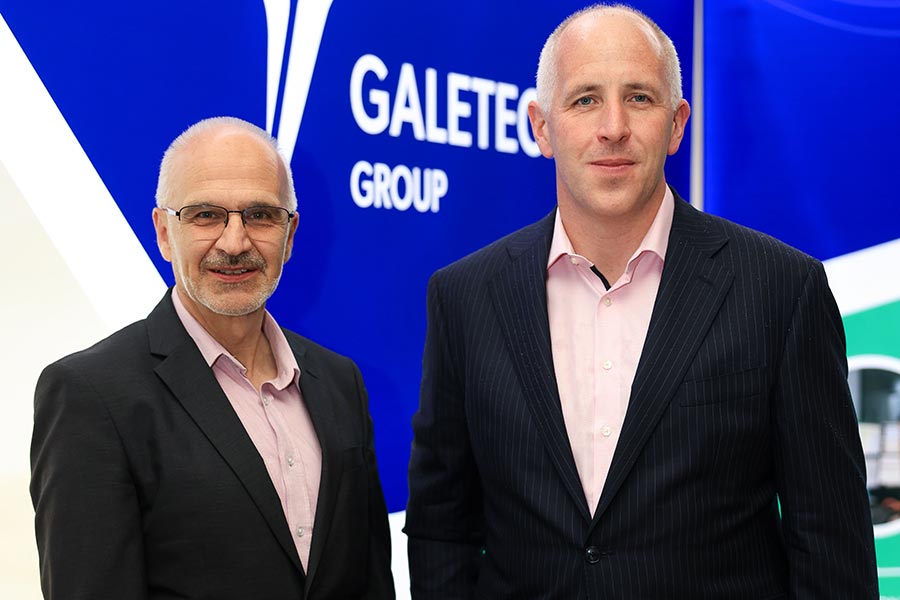Big Tech was one of the major beneficiaries of the pandemic as public restrictions forced people online in greater numbers than ever, helping Irish corporation tax receipts to record highs as a result.
This year, however, the mood has changed and seen leading tech stocks haemorrhage value for a number of industrial, macroeconomic and geopolitical reasons. Now, tech giants including Meta, Stripe and Twitter are taking stock.
Following the announcement of underwhelming financial results, some of the world’s most valuable companies conceded that they believed the shift in behaviour necessitated by Covid-19 was permanent before cutting tens of thousands of jobs.
In Ireland alone, employment in the ICT sector increased by 9.8% between 2019 and 2021, aided by the low-cost borrowing environment that has been dismantled as the US Federal Reserve and the European Central Bank have repeatedly raised rates this year.
Hiring in IT even outstripped employment growth in health (+6.7%) and public administration (+5.9%) despite the rapid expansion the state required to handle the public health emergency.
Meta CEO Mark Zuckerberg and Stripe co-founder Patrick Collison both offered grovelling mea culpas to laid-off staff members in their announcements, blaming themselves for overhiring, and not anticipating the impending economic downturn.
Zuckerberg said he had significantly increased investments since the start of Covid and been caught out by underperforming revenues, the wider downturn and “ads signal loss."
Meta has lost two-thirds of its value this year after user numbers started stagnating and Apple gave iOS users greater control over their personal data. The group posted its first-ever revenue declines in Q2 and Q3.
Collison said revenues at Stripe had grown three-fold since the start of the pandemic, but that the company was now staring down the barrel of “stubborn inflation, energy shocks, higher interest rates, reduced investment budgets, and sparser start-up funding.”
He went on to admit that Stripe leadership had been too optimistic about the internet economy’s growth potential in 2022 and 2023 and that the firm had grown operating costs, including payroll, too quickly.
Elon Musk, recently installed as CEO of Twitter following a protracted $44bn takeover, was more brusque, although the extent to which the layoffs announced by the site were socially or politically motivated is uncertain.
Teams related to communications, content moderation, accessibility, and diversity, equity, and inclusion appear to have borne the brunt of the redundancies announced in Musk’s first week in charge.

Meta, which controls Facebook, Instagram and WhatsApp, announced 11,000 layoffs, or 13% of its workforce. Similarly, Stripe cut 1,000 or 14% of jobs. Twitter cut 3,700 or 50% of its workforce, although the site has long faced questions over revenue generation and spotty profitability.
Recent months have also seen significant job losses announced at Salesforce (2,500 or 2.5%), Zendesk (350 or 5%), Lyft (700 or 13%), Snap (1,280 or 20%) and many more. Intel, which employs nearly 5,000 in Ireland, has pledged to cut costs by $3bn next year, stoking fears of job cuts at its Leixlip campus and other locations.
As the European headquarters for Meta, Stripe, Twitter and many more tech giants, Ireland’s economic fortunes are closely tied to those of Silicon Valley. Corporation tax receipts are expected to swell to €20bn this year, up from €10.9bn in 2019 and €15.3bn in 2021, while the top 10 corporations accounted for more than half of the tax last year.
The Department of Finance has estimated that €8-10bn of the corporation tax take is excess and vulnerable to a shock on a scale greater than what the economy is experiencing.
More than 275,000 people in Ireland work for foreign direct investment companies, and CSO figures showed 123,300 work in tech here in August. Google parent Alphabet (9,000), Apple (6,000), Microsoft/Linkedin (4,500), Meta (3,000) pay high wages to tens of thousands of Irish residents between them.
September’s annual taxation report showed that the multinational sector also generates a significant part of income tax receipts. IT firms pay an average wage of €74,000, and account for 11% of income tax revenues.
Meta will cut some 350 Irish jobs and Stripe around 90, while several Dublin-based teams at Twitter have been gutted, meaning IDA Ireland might have less to shout about in its annual report, so is Big Tech in Ireland under threat?
Mary Buckley, interim CEO at IDA Ireland, tried to calm fears on Friday, trotting out the line that companies needed to reduce costs after overexpanding and running into high inflation, rising interest rates, and volatile energy markets.
While describing the layoffs as “regrettable,” Buckley said the multinational tech sector in Ireland would “continue to grow in the future,” and that the state foreign direct investment agency would work closely with Big Tech to grow its presence in Ireland and deepen its impact on the Irish economy.
However, she raised long-standing issues such as “housing, energy, water, infrastructure and planning” as particular challenges to Ireland in the competition for FDI.
Leading economists agree that companies like Meta and Stripe overegged things, while giants like Microsoft, Apple and Alphabet played it more cautiously during the pandemic, and have instead implemented hiring freezes while their rivals cut costs.
Ultimately, it is likely that the sector-wide turbulence of recent weeks is temporary, and that affected companies will revert to an upward trend after a slowdown of one of two quarters. The European Commission on Friday said the eurozone would fall into recession over the winter, while predicting slower but still positive growth in 2023 and 2024.
Profits at the tech giants that contribute so much to Ireland's corporation tax receipts are likely to slow, but only relative to the breakneck speed they have risen at since the start of the pandemic, and those handful of firms will still have larger workforces in Ireland and globally than they did pre-Covid.
Indeed, the latest hiring intention data from Manpowergroup shows a net of +17% of technology companies intend to hire in Q4, while IT vacancies remain ahead of last year, according to IrishJobs.ie.










